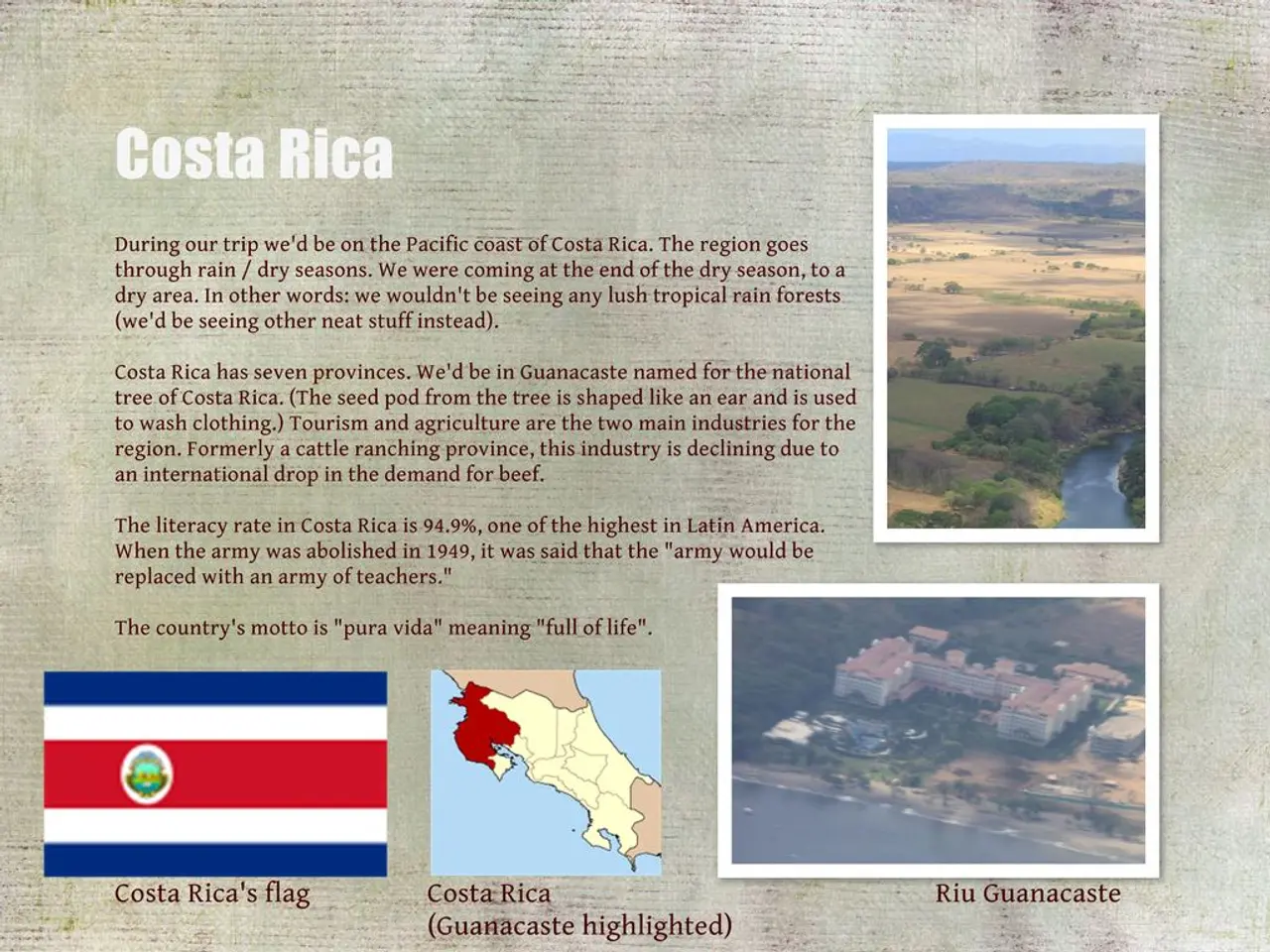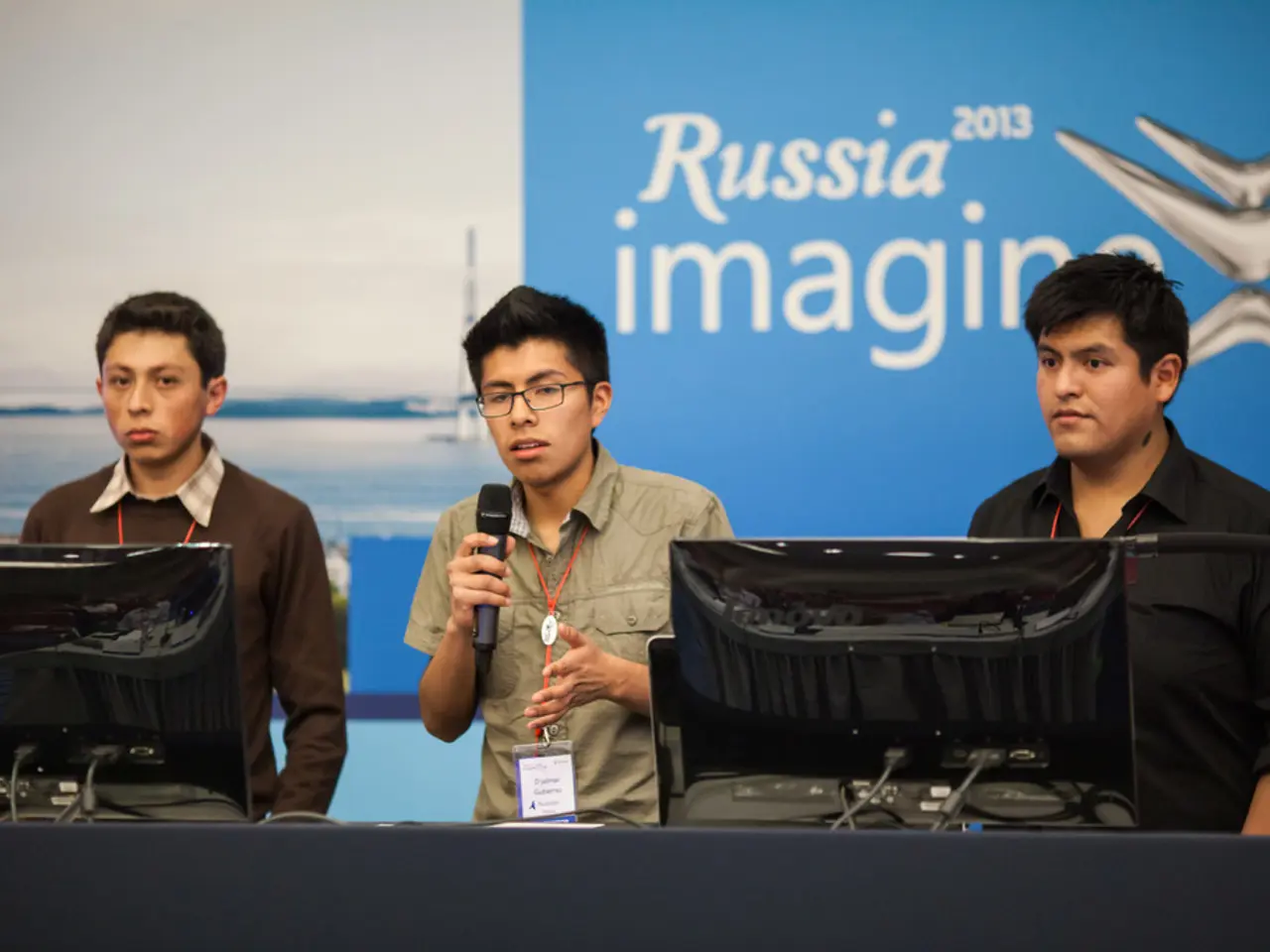Putin contacts Lula of Brazil a day following his conversation with Modi, during Trump's ongoing tariff dispute
In a significant development, the BRICS nations, including Brazil and India, have found themselves in the crosshairs of US President Donald Trump's tariffs. The current status of trade partnerships between Brazil, Russia, and India in response to these tariff hikes is one of strategic convergence and deepening cooperation, driven largely by opposition to US protectionism.
The aggressive US tariff policies, including 25% and then 50% tariffs on Indian and Brazilian goods, have prompted these BRICS countries to recalibrate and strengthen their economic ties. Key developments include high-level talks between Brazilian President Luiz Inácio Lula da Silva and Indian Prime Minister Narendra Modi, reaffirming ambitions to boost bilateral trade beyond USD 20 billion by 2030 and expanding agreements such as Mercosur–India.
BRICS leaders have publicly condemned the US tariffs as inappropriate and have voiced a common stance against unilateral trade barriers imposed by the US. They have emphasized the need to strengthen multilateral trade negotiations and reduce reliance on the US dollar in international trade.
Despite Brazil being heavily affected by US tariffs, President Lula has decided not to retaliate with reciprocal tariffs. Instead, he is focusing on diplomatic negotiations and seeking new trade opportunities with other BRICS members and global partners. Brazil plans to send business delegations to India to pursue trade and investment opportunities in sectors like energy and critical minerals, indicating a proactive stance toward diversifying trade partnerships.
BRICS countries are increasingly committed to developing alternative economic frameworks that reduce dependence on the US dollar, a key concern underlying US tariff actions aimed at protecting the dollar’s global dominance.
Brazil has also faced high tariffs on its exports to the US as part of Trump's efforts to end the trial of former President Jair Bolsonaro on charges that he attempted a coup. In response, Brazil has been seeking to expand trade with China, India, and Southeast Asia to offset the 50% tariff imposed by Trump.
The Russian President Vladimir Putin and Brazilian President Luiz Inácio Lula da Silva had a call to discuss cooperation among BRICS countries. According to a Kremlin statement, Putin and Lula reaffirmed their determination to further strengthen their countries' strategic partnership and coordination within BRICS.
Trump justified a 50 percent tariff on imports from India by linking it to New Delhi's purchase of Russian oil. This move has raised concerns over Brazil's dependence on Russian diesel, as Brazilian oil producers have gained relief from the tariffs.
President Luiz Inácio Lula da Silva has stated that Brazil will not target the US with reciprocal tariffs in response to Trump's tariff levy, but will gauge interest for a joint response among BRICS partners. The details of these discussions are still not clear.
Overall, the US tariff hikes have not fractured the trade relations between Brazil, Russia, and India; instead, they have solidified a strategic response that involves closer intra-BRICS economic collaboration, strengthening multilateralism, and pursuing alternatives to dollar-centric trade.
- In response to US President Donald Trump's tariffs, India and Brazil, part of the BRICS nations, aim to boost bilateral trade beyond USD 20 billion by 2030.
- The aggressive US tariff policies have led to a recalibration of economic ties among BRICS countries, including high-level talks between Brazilian President Luiz Inácio Lula da Silva and Indian Prime Minister Narendra Modi.
- BRICS leaders, including President Lula, have publicly condemned the US tariffs and emphasized the need for multilateral trade negotiations and reduced reliance on the US dollar in international trade.
- Brazil, heavily affected by US tariffs, is focusing on diplomatic negotiations and seeking new trade opportunities with BRICS members and global partners, such as India, in sectors like energy and critical minerals.
- Russia, also a BRICS member, has had discussions with Brazil to strengthen their strategic partnership and coordination within BRICS.
- Trump's tariff actions aimed at protecting the dollar’s global dominance have convinced BRICS countries to develop alternative economic frameworks that reduce their dependence on the US dollar.
- Brazil has been seeking to expand trade with China, India, and Southeast Asia to offset the 50% tariff imposed by Trump on its exports to the US.
- President Luiz Inácio Lula da Silva has stated that Brazil will not target the US with reciprocal tariffs but will gauge interest for a joint response among BRICS partners about Trump's tariff levy on Indian imports linked to New Delhi's purchase of Russian oil.






